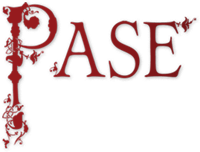Introduction
PASE is a website driven by a relational database which provides access to structured information relating to all the recorded inhabitants of Anglo-Saxon England from the late sixth to the late eleventh century. It is intended to serve as a research tool suitable for a wide range of users with an interest in this period: whether academics in various disciplines, or local historians, or students in schools and universities, or those exploring the past for reasons of their own. PASE enables its users to make different kinds of searches, to access information about particular individuals, relationships, and groups, and to move rapidly from the known into the unknown.
PASE was created by the Department of History and the Centre for Computing in the Humanities, at King’s College, London, and the Department of Anglo-Saxon, Norse, and Celtic, at the University of Cambridge. The project was funded from 2000 to 2004 by the Arts and Humanities Research Board, and from 2005 to 2008 by the Arts and Humanities Research Council (AHRC), with further unfunded extensions granted to June 2010.
The construction of the database was undertaken in two stages. PASE 1, covering sources written during the period from 597 to 1042, was published online on 27 May 2005. PASE 2 covers sources written in the later eleventh and twelfth centuries. It includes data for the reign of Edward the Confessor (1042−1066), including charters, narrative sources such as the Anglo-Saxon Chronicle and the Vita Ædwardi Regis, and Domesday Book. The Normans, and other incomers, have not been covered in their own right, but the ‘English’ – that is, those living in England at the time of the Norman Conquest − are where possible traced through the reigns of William the Conqueror and William Rufus to c. 1100. In addition, the database now contains prosopographical data from coins recorded in the Fitzwilliam Library’s database of Early Medieval Coin Finds.
All of this data was published using a web application created for PASE 1 on 23 December 2009. The research for PASE 2 also involved the creation of a new web interface which provides enhanced access to the entire database, together with a new dataset linked to mapping facilities designed to facilitate the identification of English landholders in Domesday Book. These new resources were published online on 18 August 2010.
The materials for PASE Domesday were augmented and refined by a project funded by the Leverhulme Trust (grant number F/07 040/AU) between 2010 and 2012, and by a further phase of unfunded research conducted between 2012 and 2016; the current second edition of PASE Domesday was published in 2016.
The website was hosted and maintained by King’s College, London until 2024, when it was transferred onto a new web interface hosted on servers maintained by the History Faculty at the University of Oxford.
For guidance on prosopography, and for a more detailed account of the PASE database, see About the database.
